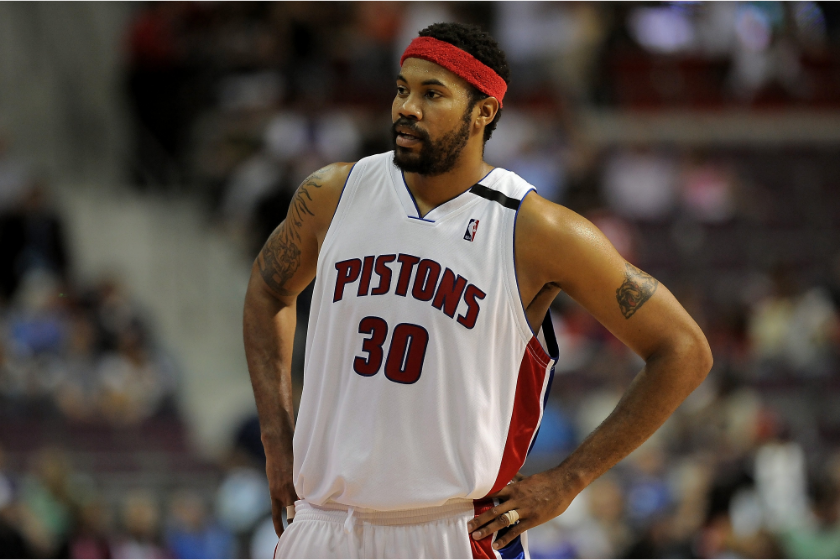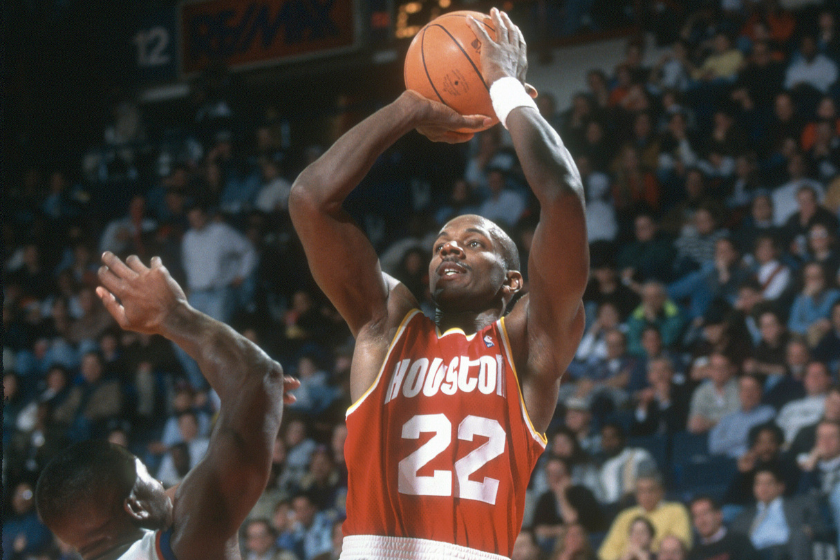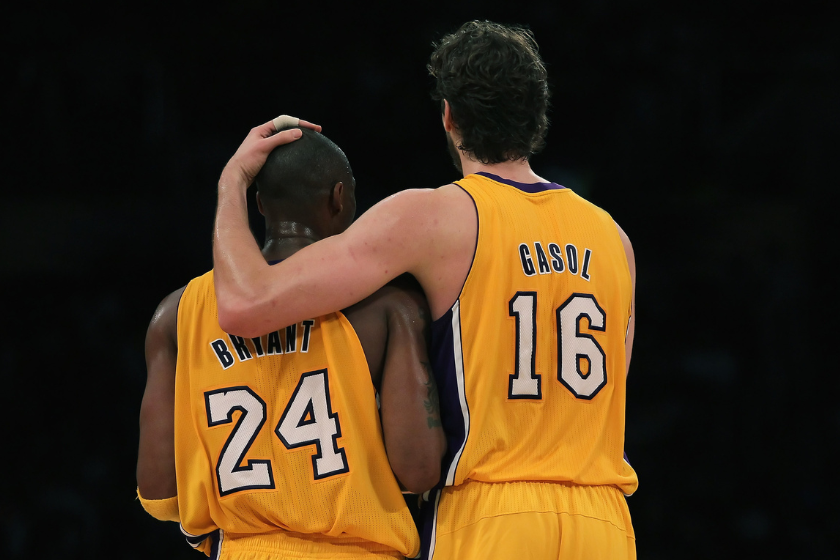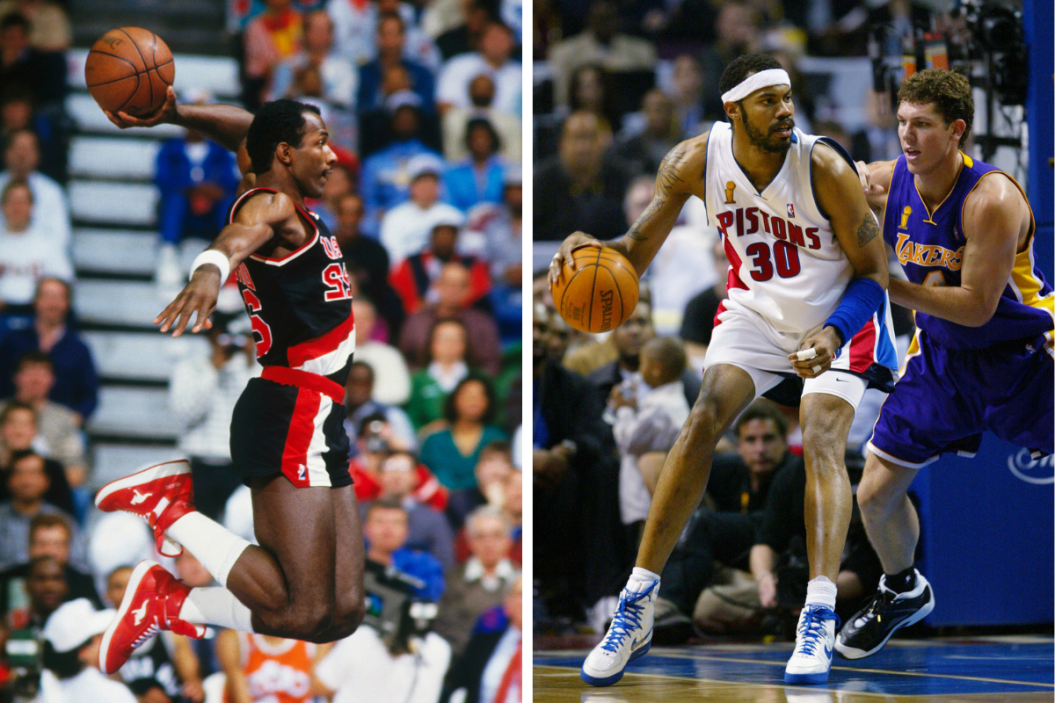Thursday is the NBA trade deadline. It's the last day of the season that teams can try to better themselves — or unload some pricey contracts — by trading with other teams in the league. There may be some other additions made before March 1 via the buyout market, but Feb. 9 is the last day a team can offload a player and get something of value — picks, players, cash considerations for the truly embarrassing teams — in return.
Videos by FanBuzz
Every season, there's a ton of buzz in the days and weeks leading up to the trade deadline. Rumors are flying, fans are fired up. The great unknown of "What can my team add?" provides endless podcast fodder. For underachievers, the trade deadline is a chance to move some of their better players to take a chance on younger guys or future draft picks. For teams on the edge of a playoff push, maybe adding one or two pieces could move you up from a play-in game to a top 6 spot. And for fans of real contenders, there's always the chance that your team will pull the trigger on a deal that brings you a star and greatly improves your chances of hoisting the Larry O'Brien Championship Trophy at the end of the season.
For some reason, the NBA has only kept rigorous track of trade deadline deals since 1987. In that time, we've seen trades with every possible outcome. Isaiah Thomas got sent to Boston in 2015 in a trade that barely made the SportsCenter chyron. Two years later, he finished fifth in MVP voting and led the Celtics to the Eastern Conference Finals. Picks that get sent around in deadline deals turn into future all-stars. Just last week, Kyrie Irving got dealt to Dallas in a move that could transform the outlook for the playoffs.
Heading into Thursday's deadline, let's take a look back at some of the most impactful deals in NBA trade deadline history.
Rasheed Wallace Makes the Pistons Champs in 2004

Photo by Gregory Shamus/Getty Images
In 2004, the Detroit Pistons were a tough-nosed team that relied on its rock-solid defense. Chauncey Billups and Richard Hamilton led the team on offense, while center Ben Wallace and lengthy wing Tayshaun Prince anchored the team's stifling defense. The only thing missing? A big man who could score it in the post.
Fortunately for Detroit, Portland decided it was time to move on from Rasheed Wallace. Initially, the Blazers sent the mercurial big man to Atlanta, where he played just one game.
Ten days later, the Hawks moved Wallace to Detroit in a complicated three-team deal that also involved the Celtics. Detroit kept its core together and added the key piece to put it over the top.
Wallace fit in perfectly in Detroit. His toughness was a perfect complement to head coach Larry Brown, and the Pistons rolled to a 54-28 regular season record, good for the third seed in the Eastern Conference. Detroit had home court advantage only for the first round, but it managed to defeat Jason Kidd's New Jersey Nets as well as Reggie Miller and Jermaine O'Neal's 61-win Indiana Pacers in the Eastern Conference. This iconic Prince block stands out as the biggest highlight from the Pistons' run.
Detroit met the Los Angeles Lakers in the Finals, in a matchup where almost no pundits or prognosticators gave the Pistons a chance. Detroit's defense and togetherness held strong, and they dismantled the star-laden Lakers in just five games.
If you wanted to really oversimplify things, you could say Wallace's trade to the Pistons led to Shaquille O'Neal leaving the Lakers.
Rasheed and the Pistons made another run to the Finals in 2005, succumbing to the San Antonio Spurs.
Clyde Drexler Jumps Ship to the Rockets

Photo by Focus on Sport/Getty Images
Clyde the Glide is one of the best players in Portland Trail Blazers history. In 11-plus seasons in Rip City, Drexler made the All-Star team eight times and led the Blazers to three NBA Finals appearances. But in 1995, he sensed that Portland had gone as far as it was going to go and asked owner Paul Allen to look for a suitable trade partner.
Fortunately for Drexler, the Houston Rockets were the perfect landing spot for him and his Blazers teammate Tracy Murray. Houston sent Portland Otis Thorpe, Marcelo Nicola and a first-round pick in exchange.
Houston was already in the midst of a successful run behind Hakeem Olajuwon. They were coming off a championship victory in 1994, defeating the New York Knicks in seven games. But in 1995, they felt they could use more scoring punch to push them over the edge.
Drexler did not immediately turn the Rockets into juggernauts. In fact, they sort of limped into the playoffs as a six seed. But when the lights got bright, Drexler and Olajuwon showed up. Big time.
The trade worked out perfectly for Drexler, as he finished the season a champion.
The Lakers Get Kobe a Center

Photo by Jeff Gross/Getty Images
On Jan. 31, 2008, the Los Angeles Lakers were 28-16. They sat in fifth place in the Western Conference.
By the end of the season, the Lakers finished at 57-25 — good for first in the West.
What changed? Pau Gasol became a Laker.
The post-Shaq years were a bit rocky for Kobe Bryant and the Lakers. They missed the playoffs in 2005 and were bounced in the first round in both 2006 and 2007. While the core of Bryant, Lamar Odom and Andrew Bynum had the Lakers in position to make the playoffs in 2008, another first-round exit was not beyond the realm of possibility. And in Laker Land, anything less than a run to the Finals is considered a failure.
On Feb. 1, the Lakers acquired Pau Gasol from the Memphis Grizzlies in exchange for a huge package: Kwame Brown, Javaris Crittenton, Aaron McKie, the draft rights to Marc Gasol, and first-round picks in 2008 and 2010. (Yes, the Gasol brothers were traded for one another.)
Pau's impact was immediate. The Lakers went 22-5 for the rest of the regular season and made a run to the 2008 NBA Finals, reigniting the league's original East-West rivalry as they met the Boston Celtics in June.
While the Celtics walked away as champs in 2008, Gasol helped lead the Lakers back to the Finals in 2009 and 2010, winning back-to-back championships. He and Bryant were an incredible duo, complementing each other's games beautifully.
All things considered, Gasol joining the Lakers at the NBA trade deadline was one of the best midseason moves in league history.
